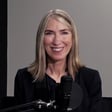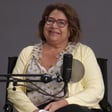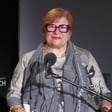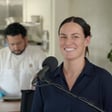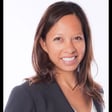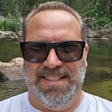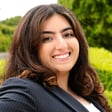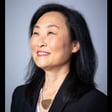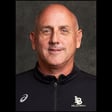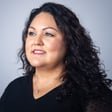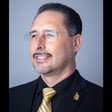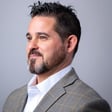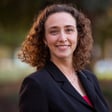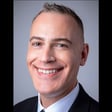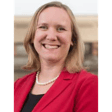Become a Creator today!Start creating today - Share your story with the world!
Start for free
00:00:00
00:00:01

"Education and community"
Former LBUSD Superintendent and CSU Trustee Christopher Steinhauser ('81, '84) discusses education, opportunity and communities.
Transcript
Introduction and Guest Welcome
00:00:16
Speaker
Welcome back to At the Beach, the official podcast of Cal State Long Beach. I'm Dan Montoya, Vice President of University Relations and Development.
Chris Steinhauser's Educational Background
00:00:25
Speaker
And today i have the honor to be joined by a distinguished CSULB alumnus who has made a tremendous impact on education at every level.
00:00:34
Speaker
Please welcome Beach alum, former Long Beach Unified Superintendent and current CSU trustee, Dr. Chris Steinhauser. A little background on Chris.
00:00:45
Speaker
A long time Long Beach resident, Chris is a product of the Long Beach Unified School District where he attended from kindergarten through graduation from Wilson High School.
00:00:56
Speaker
After receiving his associate degree from Long Beach City College, he enrolled here at the beach where he earned his bachelor's degree in liberal studies and a master's degree in educational administration.
00:01:08
Speaker
as well as a multiple subject and administrative services credential.
Career Journey and Role as Superintendent
00:01:13
Speaker
By the way, Chris's wife, Alida, also is a Beach alum. After teaching and working in key administrative and district posts throughout LBUSD, Chris was named Superintendent of the District, California's fourth largest, which serves more than 60,000 K-12 students at more than eighty campuses And in 2018, he was appointed to the CSU Board of Trustees where he is today.
00:01:39
Speaker
Welcome, Chris. Thanks for having me. It's a great honor to be back here in the library where I spent many hours. Great. It's so nice to have you. And so we're just going to have a discussion and we're going to go through a series of questions. And we just want to hear more about you, your journey here at Cal State Long Beach and Your journey from, you know, the Long Beach Community College and all the way to where you are now because you've had an amazing career.
00:02:04
Speaker
So let's talk about that life at the beach as a student to alumnus. What brought you to CSULB as a student?
Family Influence on Education
00:02:12
Speaker
Well, it's interesting. um my I'm going to be really open and honest. that My goal as a student at Wilson was to go to UCLA. And then um that was off the table because I grew up in a very poor part of Long Beach. My father i was a ah baker and always worked two jobs. I have five brothers. And so we lived in a very poor part of the city. and um my dad would drive us as a kid in a station wagon, and back then all six of us would pile in there with no seat belts, you know, and he'd drive by the university and say, this is where you're going to go to school.
00:02:41
Speaker
And he goes, you're going to go to City College first, and then you're going to go Cal State. And that was really interesting because both my parents were um ah high school dropouts. So my mom had her first child when she was 17 and her second child right after she turned 19.
00:02:56
Speaker
And both my dad went back when he was 27, actually at Wilson Adult School, Wow. and when i After I was born to get his high school diploma. So was interesting for them that they wanted to make sure that their kids received an education because they knew they could open many doors. And I'm the first in my family to actually get a four-year degree. That's awesome.
00:03:15
Speaker
And i think I think that's really a lot of the story of our students here at Cal State Long Beach. And i I love that because, you know, we just finished
Alida's Educational Journey
00:03:24
Speaker
graduation. We saw many of them come through, and they're all wearing their sashes, and it says first-generation.
00:03:28
Speaker
Yeah. But I think it's so true that if you do it, your children and their children's children will be more likely to do it as well. So um talk to us a little bit about that. And and now that that they have gone through this, that you've gone through this process, what has that meant for your family?
Financial Challenges and Supportive Faculty
00:03:47
Speaker
Well, you know, it's interesting. um My wife was here at the same time I was here, even though we never saw each other. Okay. Because she was in the bilingual ed program and I was in the English only. And we met as teachers here in Long Beach. And we met here Long Beach.
00:03:59
Speaker
She also comes from a very large family, and she's number seven of eight, and they were immigrants. you know After the war the World War II, her parents immigrated over here. wow So her brothers, all six, were born in Holland. She was the first one here in the United States.
00:04:14
Speaker
Same thing. Her mom had an eighth-grade education. Her dad received a degree as a bookkeeper. And so when they came here, they really had only $500 to their name. and But knowing that...
00:04:25
Speaker
Education in America is the golden key. Right. And that's what they really force. And so she is also the first one in her family, number seven, to get a four-year degree. And so she actually attended directly here all four years and was a recipient of the Cal Grant.
00:04:40
Speaker
So she came on Cal Grant. I didn't... qualify for Cal Grants because back then my parents, my dad had bought a house um out of foreclosure, the landowner, through the GI Bill. oh So back in those days, if you owned property, you couldn't get a Cal Grant.
00:04:56
Speaker
So I actually worked 70 hours a week like putting myself through college because that's what you did, you know. um But it was it's a wonderful experience and it really formed who we are today. Awesome. Tell us about your time at the beach, actually going through classes and your coursework and people you met. What what are you most found of?
00:05:14
Speaker
Well, you know, i have to tell you, um because I work so much and I still had a good life here. I still was a student that um I was a member of a fraternity. i was very active in my um studies.
00:05:27
Speaker
And what I remember most, to be really honest with you, was the the caring of the professors, both in my undergrad, my credential, as well as my graduate work, they would go the extra mile. They were always there. I'll give you a great example. When I became a teacher at Roseville Elementary School, one of my professors here who was an expert in Olympics, and it was in 1984, so the Olympics were here.
00:05:49
Speaker
came and did this wonderful professional learning opportunities for the whole staff, you know. And so I was able to connect with all these professors throughout, you know, for many, many years, which I thought was really wonderful that, you know, they didn't have to do that, but they did it, you know, because they cared so much. As you were going through here, there's so many transformational moments, right? And is there any one professor that sticks out to you or any particular time and in your in your years here that kind of helped set the stage for what you wanted to do next.
Commitment to Equitable Education
00:06:21
Speaker
Oh, absolutely. There are One in my credential program, Dr. Marina Krause. She was a mathematician, and I had her for multiple math classes. And man, did she teach me how to teach math and how to assess math, and she was unbelievable.
00:06:33
Speaker
And then second was Dr. Leland Parrott. He was um taught statistics. okay And toughest class I have ever had in my entire life. But man, did I learn it And that was a great thing for me later on in my professional career to understand stats. you know so But they went unbelievably the extra mile.
00:06:51
Speaker
That's awesome. Now talk to us about being a champion for K-12 education. What inspired you educate to dedicate your whole career to public education? Well, you know, as I said earlier, I grew up here in the Long Beach, and it was called the Zafria District. And so it's a very ethnically mixed district and you know probably about 50% white, 50% Hispanic. And we were all working class parents. Like one of my first jobs was literally five homes from my house. Mm-hmm. Tidy-didy. So I would come home from school after football practice, go to the tidy-didy, count dirty diapers, then clean up, go home, and do my homework. and so But I learned early on, to be really honest with you, that being poor and white had its advantages over those who were not white. so Because even kids who I went to school with who were Hispanic and other ethnicities would be tracked into different courses, you know where I was tracked into the college track. And so for me, I thought, you know what, if I ever have the opportunity
00:07:45
Speaker
I'm going to make sure that that doesn't happen to kids, that I'm going to make sure that everybody has the same opportunities, no matter what your your ethnicity is, and no matter where you come from.
Public Education's Role in Community Strength
00:07:55
Speaker
Because, you know, we have issues in in America we always have had. sure And so how can we break it down so that the level playing field as much as possible for everybody?
00:08:05
Speaker
That's great. So um during your time as superintendent, what are certain key um improvements that you witnessed? Because of that upbringing, um one of the issues that I always put forth, because Long Beach is a wonderful system, you know, you have, most people don't know, Long Beach has, the city of Long Beach, has one of the largest public housing projects in l L.A. County, okay, Carmelitos.
00:08:24
Speaker
And so then you have very wealthy parts of the city, too, where parents of Fortune 500 companies, you know. So i wanted to make sure that everybody, for example, AP. AP used to be very restrictive. You had to do all these things to get into an AP course.
00:08:37
Speaker
And it was through my son's first AP course that I learned this, you know, as a superintendent. i thought, oh my God, I don't know this and I'm the superintendent. And then i said, and of course, you looked at those classes and they were predominantly Caucasian when the school was not. And so what we did with the board's leadership, we opened AP, opened it everybody who wanted it. as say With the exception of Calc, you can't take AP Calc if you've never taken math courses and languages, you know. So, and for that, Long Beach was recognized as a leader, breaking down this class system and opening up AP to everybody and paying for the exams. So for example, it's one thing to get in the course, sure but the exams back then, they were like 85 bucks a pop. And so we charged um everybody only five bucks.
00:09:20
Speaker
And so the district, even to this day, the district pays millions of dollars to support that. So what we did was really, for example, we opened up algebra, we opened up gate to folks. We looked at everything. The district has always been a great leader of equity. So what were our internal practices, our own, you know, urban myths? Sure. What could we take control of? And then how can we support? Because it's one thing to say, you're going to go in that program. Yeah.
00:09:44
Speaker
And then how do you support them to be
The Long Beach College Promise
00:09:46
Speaker
successful? Wow. That's great. Talk to us about why the K through 12 system is so important as a feeder to all the way up to college. ah you're You're too young to remember this. So I'm a dinosaur. So I've lived my whole life. And so, you know, during the 80s and the 90s, Long Beach went through some really tough times. So we had the massive closure of our naval base, McDonnell Douglas, which, you know, used to be the number one employer of the the city.
00:10:11
Speaker
And then we had, of course, the silver unrest of the ninety s And so we had major flight from this community. And we knew that the public education system is the anchor for the community. So businesses won't locate here unless they come. And so for us, it was how can you have a strong public school system to ensure that, and because Long Beach is fortunate to have its own community college as well as its university, which not a lot of places have, how can we all come together to make sure that it's one-stop shop, that you really don't have to go anywhere.
00:10:40
Speaker
Right. You can stay here and get an unbelievable education. And, you know, it's a much different place today than it was back in the 80s. It was a ghost town, I'll be honest with you. is. Now people are thriving to come here because of the educational system. And I would say p sixteen Yeah, that's great.
00:10:56
Speaker
I think that's so important for people to understand the phases that Long Beach went through to get to where we are now. Spent a lot of time in San Diego and and that Navy presence in the military produces ah it's a huge economic engine to to that city. So I can imagine them leaving would leave a big void here at Long Beach as well. So talk to us about the Long Beach College Promise. Can you share the story behind it? And what was the whole theory behind creating? It all goes back to George Murchison, who's still alive today. yeah
00:11:28
Speaker
He and I actually go to the same parish, St. Joseph's. And so because of the losing all these jobs and the civil unrest, around 1994, Mr. Murchison, on his own money, brought the leaders of Long Beach City, Cal State Long Beach, the district, and the city, put us in a hotel in Huntington Beach for three days, and basically said, we've got to have ah develop a world-class educational system.
00:11:48
Speaker
And you guys have got to stop finger pointing and to have to come together. And Beverly O'Neill was our mayor at the time, former
Collaboration and CSU Trustee Experience
00:11:54
Speaker
educator from, you know, Long Beach City College. And it was wonderful. The first day was pretty intense. um You know, not a of people talking to each other.
00:12:01
Speaker
And I wasn't the superintendent at the time. I was a cabinet member. Carl Cohn was the superintendent. And from there, we said we would all work together to develop this world class system. which at that time was known as seamless education. And then later it morphed into the Long Beach College Promise. And what it did it was it brought back, for I'll give you an example. English teachers at the university would say that the high school is not doing a good job. And the you know same thing with community college. And so We would bring all English teachers together from the different institutions.
00:12:29
Speaker
We'd say, okay, what is a you know grade a paper? What do we want us to teach? And then we'd go forth and do it. And it was, we had never been done before. So we did it in English. We did it in mathematics, science, and social studies. So like twice a year, we would bring people together. And then it was wonderful um because egos went away. And it was powerful to see what can be done once people agreed on what the gold star was going to be. That's great. So what makes it a model program for the nation? And how can it be replicated? Well, it can easily be replicated, and it became a model for the nation when we developed the promise because the promise, and it was actually here at the pyramid where everyone signed this document, because what it says is LBUSD is going to do certain things, as is Long Beach City College, as is Cal State Long Beach. Long Beach State giving preference to, for example, the K-12.
00:13:13
Speaker
who meet the minimum standard, it really sets this bar high that for folks. And I can't tell you how it has transformed everybody. And I'll give you a great example. We would meet monthly. So the presidents and the CEOs would meet monthly. And Eloy Oakley at the time was at Long Beach City. And Jane, of course, was here.
00:13:29
Speaker
And they'd say, Chris, you have to you only have a two-year math. And the kids who have four years of math are doing much better than those who have two and three. So you've got to change that requirement. And so i went back to my board, said, hey, guys, the data's here because we have a data sharing agreement.
00:13:45
Speaker
The board, no problem. Long Beach is only one of three school systems in California that has a four-year math requirement. Everybody in in groups came out and said, you're going to hurt kids if you do this. Nobody got hurt.
00:13:56
Speaker
Everyone's grad rate went up. But the power was when you focus on... the important pieces of mathematics and others. You open doors for kids. And so those are those things where we didn't take offense to it. We saw it as a positive and everything can be done in that process. And it doesn't cost a fortune to do the promise, to be real honest with It's all people working together. And the beauty of the promise was, you know, President Obama recognized it and that's how he developed America's promise.
00:14:20
Speaker
Right. And now you've got California's promise, you know, with two years of free schooling. And you've got to give Long Beach City College credit for that because they started that. So it's it can be done if people are willing to do it.
00:14:31
Speaker
And most importantly, put egos aside. Yeah. No, I think that's and that's so true. And how has it strengthened the connection between LBUSD, LBCC, and Cal State Long Beach?
00:14:41
Speaker
Sure. Well, I'll tell you, in my 18 years as superintendent, we had so many people who would go directly, say, okay, we're going to go to Long Beach City and and and get into their honors program and then transfer, or we're going to go directly to Cal State Long Beach and get in their program. Engineering is a prime example. Engineering is a tough field, yeah and you have to have a certain sequence.
00:15:00
Speaker
So folks would say... Long Beach Unified, do you need to do X. Long Beach City, you do Y. And then when they come to Cal State Long Beach, they'll be prepared. And so that's the beauty. And when we were developing and building new schools, individuals from Long Beach State as well as Long Beach City were on those design teams yeah to design what those high schools needed to look like so they would be prepared here.
00:15:21
Speaker
That's great. I know you you got some opportunity to spend time with us at commencement. ah tell us Tell us what that was like looking at from a different lens. You know, I love commencements and at all levels. and so But when I get to the university, what I love most about them is exactly what you said. You know, when people ask how many are the first gen, it's usually around 50% or more.
00:15:41
Speaker
And to me, it it just warms my heart because this is the new America. This is opening doors for all. This is what, you know, if you like I said, if you knew me where I grew up, you'd never say, this kid is going to grow up to run the biggest employer in the city of Long Beach in a billion-dollar corporation. That would have never been on your radar. Right, right. And anything can happen if you're given the opportunities to have a seat at the table.
00:16:01
Speaker
And so for me, it was just so warm and um to see the smiles and the parents and everybody. And just it's a wonderful time. I was at Long Beach State and I was at Cal State Dominguez. It was I was just made my day. You know, that's what it's about. That's good. Now, you know, again, being experienced with, you know, the three of the systems here in Cal State Long Beach, you magnify that, right, to the CSU, right, which is 22 campuses, right, which is huge.
00:16:28
Speaker
So talk to us about your experience and and what it's been like as a CSU trustee. Well, you know, it's been a great night. When Governor Brown called me up ah and asked me to do this, I thought he had lost his mind, to be honest with you. and so um But I said I would do it because i owe my life to CSU the system. And for me, it was how could I take what I've learned, both personally and professionally,
00:16:49
Speaker
and help the entire system. Because as you said, we have 22 campuses and they have a lot of autonomy. and and And I'm going to be really open and honest. Being a trustee was, ah i had to learn a lot because as a CEO, I had a, you know, I could say, we're going to X, we're going to do Y. And it's a little different, you know, when you have 24 colleagues, you know, we have 25 trustees.
00:17:08
Speaker
So you have to learn because our job is developing policy. It's not managing the day-to-day operations. But it's been a wonderful experience. I've happened to chair some really great committees and worked with wonderful people.
00:17:18
Speaker
who all want the same thing. They want the students of this state to get the best possible education.
Enrollment Challenges and AI Impact
00:17:24
Speaker
Talk to us a little bit more about what exactly the Board of Trustees does to guide the CSU. I think a lot of people look at, oh, wow, it's this big group of leaders that set the precedence for what we can and can't do. But it's more than that. oh It's a lot more than First, I'm going to say, you know, a lot of times speakers will come and say that the trustees are making these huge salaries. Well, we don't make huge salaries. We're allowed to get $100 meeting.
00:17:49
Speaker
um I've never taken the the stipend. For me, it's about sharing social service. But people are really there for the right reason. they're You know, our number one job is to pick a chancellor who then will carry out the policies in the direction of the board.
00:18:05
Speaker
And, you know, we have to advocate in Sacramento as well as federal in Washington, D.C. And our job really is to say, how can we make sure that every student who comes here can get out in a reasonable time, right have as little debt as possible?
00:18:19
Speaker
A lot of people don't realize that 50% of the students who go to our school, our higher ed system, you know, go for free, basically, you know, and so which is remarkable. Yeah. And so for us, it's setting that high standard and more importantly now, to be honest with you, looking toward the future.
00:18:34
Speaker
So what is the future going to look like? So we know that there's a decline in students before CSU really could hold students back. Now you can't do that. AI is on the table. It's changing the entire world. So how can we be proactive as well as the issue of workforce development? As you mentioned, 22 campuses. California is very diverse. Job opportunities here in Long Beach are very different than they are in Fresno and in the Valley. So how can we make sure that we have alignment with our communities to make sure that our youngsters are prepared? Because CSU employs, once they graduate, the vast majority of Californians.
00:19:07
Speaker
It's amazing work for us. Just in teaching alone, we're the number one provider of educators in the state of California. ye and And many of our graduates go on and be elected officials. and Absolutely. Run the state and and the national level. um Absolutely. You know, what are some of the biggest ah opportunities and maybe challenges ahead for the CSU? I mean, and that's that's kind of a loaded question because there's so much out there. Yeah. I would put them together. I would say the opportunities and challenges are together and I'll use two. One is this issue of enrollment.
00:19:39
Speaker
We have to think very differently of enrollment. So for example, I'm a student here at Cal State Long Beach. What's prohibiting me from, without any bureaucracy, taking courses at Dominguez and at Sonoma you know at the same
CSU's Innovation and Technology Approach
00:19:53
Speaker
time? sure you know Because maybe you don't have them. you know So this blended piece, the other part.
00:19:58
Speaker
The other part is that we have to really look at this integration of the world. AI is changing things at the fastest rate that no one's ever seen. and we When we talk about the industrial revolution and we talk, this is a revolution that I don't think most people are prepared for. So how can we get ahead of the game? Because i was listening to a podcast from a CEO who said, you know what?
00:20:19
Speaker
This is the last CEOs who are just going to manage people. They're going to manage people and robots. And technology. Exactly. you know so So how can we prepare everyone for that? Question going back to commencement.
00:20:30
Speaker
Listening to some of the things that our young people have already done was just blew my mind. you know So that's what gives me great hope. But we we have to move faster as a system. We have to focus on equity. And we have to look at how can we build new alliances. And by new alliances, I mean Arizona State has done an unbelievable job of taking our students. I'm just going honest about it. Yeah, that's true. So we need to do the same and we need to break down all walls and some of these are our own barriers that we need to look at.
00:20:59
Speaker
Yeah, and I totally agree with that because a lot of a lot of times even students, you know, come into a CSU, they're like, wow we're not We're not But we we have so much to offer.
00:21:10
Speaker
And I always say a CSU graduate is set up in ah an entrepreneurial environment. in In other words, everything is here. You've got to go find it, right? So a lot of our graduates, when when they come out, they know how to find resources. They know how to network. They know how to read. They know how to write. They know how to troubleshoot.
00:21:27
Speaker
And a lot of times when I talk to industries, right, um example as like is accounting. And I say, what's the difference between accountant that comes out of the CSU versus an accountant that comes out of a private school?
00:21:39
Speaker
A lot of the times they say the private schools are used to, those students are used to having everything done for them. So when they get to industry, their expectation is that they're going to start at the top and with a big salary and and they're going to have all these privileges, right? And not a CSU student, they're they're maybe not as polished, but then they come in and they know how to execute the work.
00:21:57
Speaker
And they use these self-promote a lot faster because they're not afraid to get their hands dirty and and learn the job and advance. And so that's the beauty of the CSU and how it prepares the students to go on and be successful.
00:22:10
Speaker
I would agree 100%. I think our our young people have more grit yeah and persistence so than students in other systems, you know, the for the reasons that you just stated. and and And that's where the innovation and and the new discoveries all lie. Yeah. And I think AI is a matter of, we have to learn it.
00:22:26
Speaker
And i what I love about it is the CSUs are embracing that and saying, how do we incorporate that into curriculum? and And how do we utilize it and allow students to utilize it in a creative way? The power of the mind is still more powerful than any e AI product, right? And we we know that even though you have AI, it's going to give you, it's ah it's a place to start and it gives you ideas, but still the human has to implement those and move them forward. And so I think The more we learn about it and the more we learn about how to use it, I think the better off we're going to be. And I'm i'm starting to see that in the CSUN, especially here at Cal State Long Beach. Right. And we as a system, we have to be innovative in building new programs.
00:23:04
Speaker
So we we can't wait for it to come to us. We have to be the leaders. And know we have them up and down the state and and the the different campuses. But we're going to have accelerate even more you know just so that our our young people, have they can take that degree and use it immediately into the job you know
Community and Alumni Involvement
00:23:20
Speaker
opportunities. Absolutely. So what gives you hope for the future of education? Hey, when you attend these commencements, I have a huge hope.
00:23:26
Speaker
And I'll be honest with you, you know when I left my job and when I retired, I really worry about the future you know because, again, I was so blessed. um When I see the young people today, I'm like, no, it's going to be okay, Chris. ah But we just have to make sure that we support everybody. And how can we support so that we can provide those individuals with everything that they need to be successful? Yeah. so So let's talk about that. How can alumni, friends, and community partners continue to support that next generation? Absolutely. You know, i would encourage every member who who's an alumnus to come and give whatever they can, no matter what, if even if it's 30 minutes to talking to somebody. yeah a lot of times people think, you know, I have to give ah you know millions of dollars or I have to do X, Y and Z. I don't have all the time.
00:24:04
Speaker
Whatever you give is important because that mentorship, that allyship is so important to our young people. Just experiencing, you know, I can't tell you how many people come up to me and say, what was your journey? You You know, da dada what can i learn? How can I learn from mistakes that you made and and so on? And so I think those are so important. And for those who are are blessed and can give more, you know, and resources, which we have a lot. Sure.
00:24:25
Speaker
Do that because it ah your return is huge. Yes. It's absolutely huge. I always tell students, don't make the mistakes I made. Make your own. Exactly. Exactly. and And I think that ah is such powerful advice because, you know, I i love to mentor you know young men who are coming through the pipeline. And lot of times they have this mentality that we're like these magical figures that have gone on and done great things. And I'm like, no, you'd be surprised.
00:24:54
Speaker
I came from a background just like you. And I think the most important thing that I did is just show up every day. I just showed up, put in the effort, try to get better, you know, day to day and got better ah tomorrow than I was the day before and just kept
Advice and Personal Values
00:25:08
Speaker
grinding. That's it. you know and And when you got knocked down, how did you get back up? Yeah, just get up and keep going.
00:25:12
Speaker
And that the other thing I think they need to understand is that failure is part of the process. Absolutely. So many people are afraid to fail, but it's part of the equation. If you look at any successful person. You failed more times than you succeeded.
00:25:24
Speaker
And that's just the way it goes. So looking back at your, you know, young, vibrant self in college, you know, what advice would you give yourself? You know, I'm an introvert at heart.
00:25:37
Speaker
A kid one time said, you're the superintendent. I said, I don't like speaking in public, you know. I had to do all the time. yeah So what I would have told myself was don't let anxiety and fear take over. you know i sit back in the class all the time.
00:25:48
Speaker
I should have been more innovative. I should have been out there you know jumping in the deep end of the pool and not knowing how to swim. And so I was very cautious as a student. I was afraid to fail, like you said, even though I have failed a million times. But I i always ask myself, what could I have done if I had taken that path a little more and instead of being too cautious? You know, to be honest with you. You had a successful run, right? You've had, ah you know, not just in in your career, but in your life, in your family, in your grandkids. I mean, I see when you and your wife talk about your family, you light up because it's it's it's it's a huge accomplishment.
00:26:24
Speaker
What has inspired you through the years as you've grown as a person, individual? What inspired you to become who you are and what drives you to continue? Well, you know, I have to you know give credit to my parents. you know they They've grounded us in deep faith. We've always said you know we have our faith, but we don't push it on anybody else. and so But the issue was, and that you have to you have a responsibility. So when you are are given a lot, you have a responsibility give back a lot. So for my kids, to be honest with you, from day one, they were taught to give back.
00:26:53
Speaker
They were taught you know all these things, and they're great kids. They give back to the community. And for us, it's how can you leave the place a better spot than you should have. I'll give you an example. Someone told my son the other day, we saw your dad at Trader Joe's picking up trash. Some some one of our house individuals had decided to dump it some trash cans all the place. So yeah I got some gloves, picked up the trash, and and and my son said, well, you know what? That's the ethos in our household. If you see a problem, you take care of it. you know That's right. So and for me, it's, you know, it's interesting because lot of times people will walk by things, you know it's like, no, your your community is only as strong as you are. Right. And so that's why, you know, we're so blessed here to be in Long Beach. We have all the right things.
00:27:34
Speaker
And how can we make it even better? So how can we make this community even better for the
Long Beach Changes and Improvements
00:27:39
Speaker
next generation? um know Before we close out and get your words of wisdom, talk to us a little bit about Long Beach and how it's changed through your time here. i mean because you've seen, you know, you grew up here and to where it is now, you know, what has been transformational?
00:27:53
Speaker
Well, you know, I grew up here and when it was a Navy town, you know, the old Pike. I still remember the old Pike. You would never go down there. You know, we were not allowed to go down there by any means, you know. And so today we go down there to have dinner. We go down there to see shows and so on.
00:28:08
Speaker
To me, the city is a much better place today for on so many fronts, especially the i diversity. Long Beach is a great community, many neighborhoods and so on. But I believe Long Beach truly wants to strive to be this place.
00:28:20
Speaker
That is the new America. So you have this unbelievable diversity. And then how does it how do you make sure that everyone is respected and has the opportunities to grow? And, you know, this, you know, i always tell people Long Beach is a city of a half a million people, but it's a small town.
00:28:34
Speaker
Yeah. So it's my kids live here. Their kids probably will live here. You know, you see multiple generations. And for me, it's just working with everybody. And just because I'm retired.
00:28:44
Speaker
I'm not retired. you know I just have a different role now.
Encouragement for Prospective Students
00:28:47
Speaker
I'm not the CEO, obviously, of the superintendency. But being a trustee, man, it's been unbelievably rewarding. Well, I thank you for for serving in that role because it's it's not an easy role. And there's a lot to consider and a lot to to really think about on how to move all universities forward. And and I appreciate that. and And even working with your colleagues because you work from colleagues from all walks of life and from different parts of the state. And And, you know, it takes that open mind to be able to do that. So I commend you for that. We thank you for sharing your journey and insights with us. Is there any last minute things you want to share or any thoughts?
00:29:23
Speaker
Yeah, just to any young person out there who's in high school who's considering going to college. Consider the CSU first. You can do whatever you want. You can change your major. you can It's unbelievable.
00:29:34
Speaker
My daughter is a prime example. She went to San Francisco State to go into event planning. did that She did the Oscars, the Grammys, all that. wow Then switched, came here to Long Beach State to get her credential because she saw that as her calling.
00:29:47
Speaker
And they were wonderful. And so the issue is we have the best system for whatever you need and want. Right. I think that's a great selling point. And maybe we should create a banner. The CSU has everything you need and want to be successful.
00:30:01
Speaker
So I think that's powerful. Your story is amazing. And it's it's really a good reminder of what can be if you just put in the work and and show up, you know, and and be good
Conclusion and Farewell
00:30:12
Speaker
to people. I always will ask ah guests to share any anything about themselves or their work, our experiences that they want the listeners to hear. And you shared so many of that as well. And so we thank you and your wife and your family for all the contributions here at not just, you know, within the CSU, but also the city of Long Beach. union And I know we're better for it. So thank you so much. We always like to finish out the podcast with a go beach. So we'll just do that. So one, two, three.
00:30:41
Speaker
Go beach.
